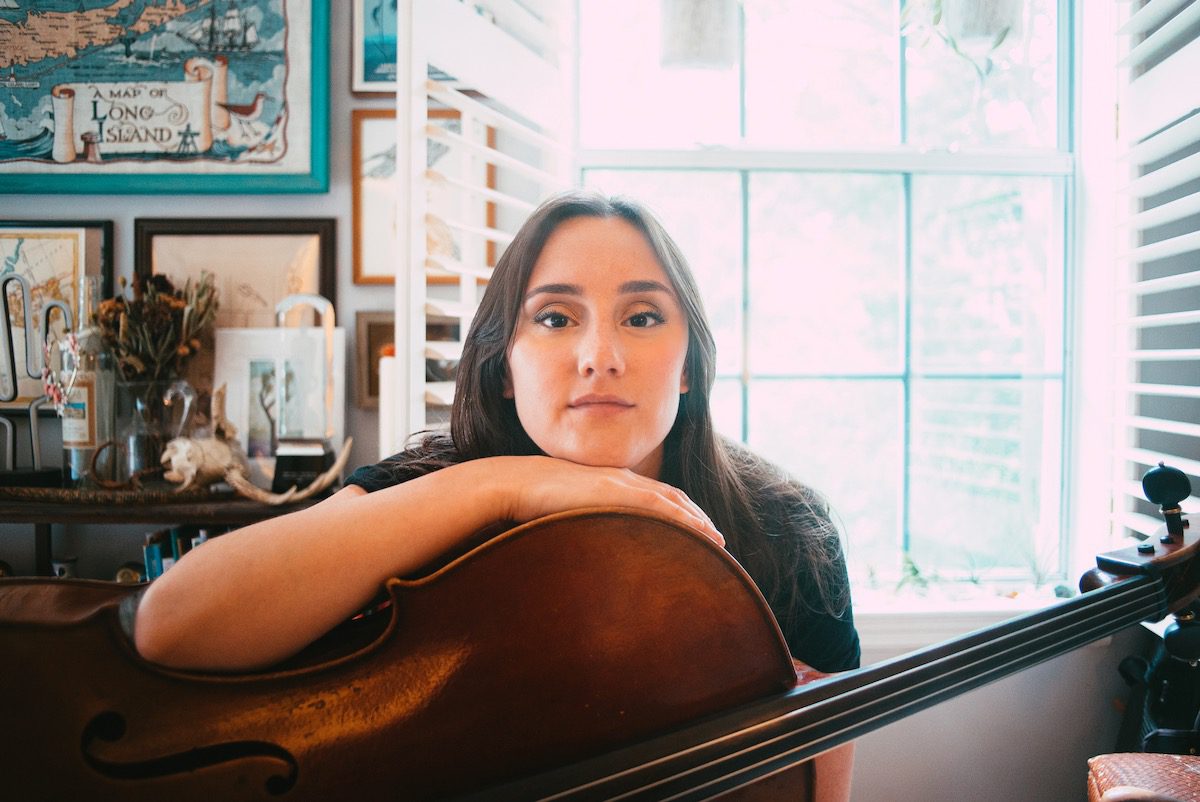THE LONG HAUL: Musicians Carry a Heavy Load from Student Debt

Kaitlyn Raitz (photo by Kaitlyn Raitz)
EDITOR’S NOTE: This is the first of a three-part series exploring financial challenges that affect musicians and their careers.
Musicians and money is an often mysterious space that few know or understand, including, at times, musicians themselves. With Biden’s presidency now in full swing, the United States is taking a good look at student debt forgiveness. According to Forbes, 45 million Americans currently owe a collective $1.6 trillion in student debt, and Biden is committed to cancelling $10,000 for people in debt who are “struggling economically,” with some Democrats in Congress pushing for up to $50,000 to be forgiven. Unfortunately, a $10,000 forgiveness is truly a drop in the bucket for many people, some of whom owe up to $200,000 for their degrees and are not even making enough to cover their daily expenses.
In part, the struggle is universal to all career fields, but the creative class is particularly affected. Most people in my generation grew up being told by our parents, teachers, and society in general that going to college and getting that bachelor’s degree was the ticket to financial security, and I think that most Americans believed this to be true based on their own experiences. Yet, in so many industries, my generation found that our degrees have become essentially meaningless and we needed to either continue on to grad school (read: more debt) or carve out our own path in order to make any money. Being an artist in today’s world means being an entrepreneur, and you get hired based on your skill set, not your résumé. This means that many musicians graduate with tens of thousands or even hundreds of thousands of dollars of student debt only to find that those hard-earned degrees will not get them a job that allows them to pay those loans down.
That debt load makes starting a career especially difficult. I graduated from college mercifully free of student loan debt, thanks to a combination of need-based and merit-based scholarships and choosing a school specifically for the financial aid it could provide, strategies not available to everyone. After I graduated, I lived on less than $1,000 a month while I tried to get my musical career off of the ground. I lived in the empty pantry of a shared house for eight months while I was making my first album, Shame. My rent was $200 a month, which allowed me to pour the majority of my earnings from gigs and odd jobs into the making of that record. None of this would have been possible with the obligations of huge student debt hanging over my head, which easily could have been my story.
Financial struggle in creative fields is nothing new, but what is new is that in many cases, even when success is achieved after years of hard work, student debt can make it impossible to progress financially.
Today I want to highlight the experience of cellist Kaitlyn Raitz, a friend who is one of the hardest working people I know. Kaitlyn has hustled as hard as anyone could to get to where she is, learning photography and videography skills, driving for Amazon Flex, and working for catering companies in addition to being a world-class cellist. She has a master’s degree from McGill University in classical cello performance and a bachelor’s from SUNY Purchase. Just before the pandemic, she was hired for her most prestigious and well-paid gig yet, playing cello in the band of Grammy nominee Brandy Clark, and she felt that her financial goal of buying a house with her husband was almost within reach. However, because of her student debt, when mortgage companies look at her debt-to-income ratio, her income is still not high enough to outweigh what she owes to the government for her education. She was kind enough to open up to me about how this has affected her life.
Whenever I talk to Kaitlyn about this struggle, I am reminded that her decision to take on hundreds of thousands of dollars in debt was made at the age of 18. In this country, there are currently millions of students — 18-year-old kids who have never paid rent or bills in their life, who have no idea what it means to work a job full time or what they may really want to do for a living — being told to sign on the dotted line for student loans as a path to career and financial success. These kids end up owing a debt the size of a mortgage to the government or to private companies, and for what?
Here’s more from my chat with Kaitlyn about her experience:
How much student debt do you have, and what degree did it get you?
I have a lot of student debt. Like, an I’ll-be-making-payments-until-I-die amount. The majority is federal student loans and a much smaller amount is private. I have a Master of Music degree in classical cello performance.
How did you decide to take on student loans?
When it came time for me to go to college, taking out student loans was really my only option. The amount my family had saved for me for college covered only my first semester. This was in part due to my father going through cancer treatments for a few years as well as the exorbitant costs of living on Long Island, New York. Saving more just wasn’t in the cards.
How does your student loan affect your day-to-day life?
Most days, I go on in blissful ignorance regarding my loans. The number is just too big to fathom. There are moments where it all snaps into focus, though, and I realize the enormity of it all and I get thrown into a death spiral. I hear myself complaining about having student loans for two degrees in the cello. I borrowed all this money to learn how to play a box with strings. What was I thinking? Maybe I should have gotten a degree in something that has more of a guarantee of financial return. Or maybe I am just not good enough and that’s why I still have all this debt. Maybe I didn’t work hard enough. Maybe I’m not currently working hard enough. And then I mentally slap myself and exclaim: Fuck that. I’m good at what I do and music fucking matters.
How does your student loan affect your ability to progress financially in your life?
The biggest barrier right now is the inability to buy a house. I’m happy to say that, pre-pandemic, I was doing the best I had ever been doing financially and it seemed possible that me and my husband would be able to get a mortgage for a modest home, but it turns out that my federal student loans, despite the fact that my monthly payment is $0 [because of her income bracket], tip the debt-to-income ratio grossly not in my favor. While I’ve been able to make real dents in my private loan debt, my federal debt is so substantial that I fear it’ll always be a cloud that looms over me in financial decisions like this.
How does your student loan affect your career and relationship?
I’m grateful to be married to someone who didn’t balk when I told him about my student debt. Thankfully, he doesn’t have any to speak of; he is Canadian and went to school there, where university is much more affordable for residents, so we can tackle mine together. [Kaitlyn paid international tuition at McGill University in Canada, and the majority of her debt is from her undergraduate degree at SUNY Purchase.] It is a point of stress for us, though. It’s impossible to have so much debt and not find it stressful. It doesn’t really affect my career so much as it makes me feel like I’m constantly not doing well enough. Like, if I was truly successful, I would be able to pay these off. Capitalism, man.
Tell me all of the side jobs you’ve taken on in the past five years?
Over the last five years, in addition to playing the cello in all facets (recording, freelancing, making my own music, composing, and arranging), I’ve worked also as a photographer, a videographer, a graphic designer, catering staff for four different companies, a waitress, and an Amazon Flex driver.
What do you most want people to know about student debt?
Because I make under a certain income bracket, the government has decided that my monthly payment is $0 a month. That all sounds great — but they are still charging interest. I’ve got to admit, the loans I’m most upset about aren’t the private, high-interest loans. I’m most angry with the government for trying to make money off of young people who are obviously having a hard time. And, yes, I theoretically knew what I was signing up for all those years ago, but as a child who had never really paid a bill in her life, the reality of what I was signing up for didn’t really compute. Even still, knowing what I know now, I would not have done anything differently. I still would have gone to music school. I still would have taken out the loans to do so. I just wish and hope that the United States tackles the issue of our high cost of education so that future generations don’t get into this mess.
Kaitlyn is currently creating amazing educational content for cellists on Patreon, and you can find out more about her on Instagram at @kraitz and at kaitlynraitz.com.




